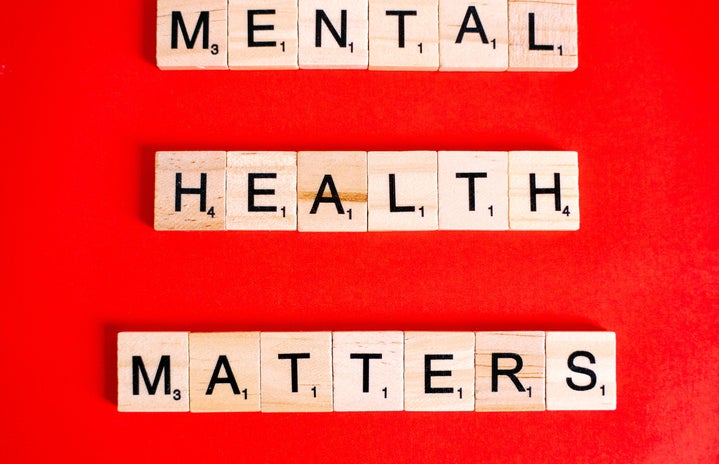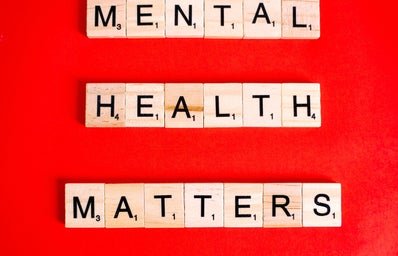On Nov. 3, United States Surgeon General Dr. Vivek Murthy traveled to the University of Washington as part of his We Are Made to Connect national college tour, an initiative to promote social connection and mental well-being on college campuses. In conversation with podcaster Lily Cornell Silver, Dr. Murthy shared the importance of social relationships, interpersonal connection, and mental health transparency in college. Through informal conversation and group activities, UW students had the opportunity to start building the small moments of connection that Dr. Murthy emphasized.
According to Dr. Murthy, the United States is currently plagued by a “loneliness epidemic,” with one in two adults suffering from loneliness. Beyond negative impacts on mental health, loneliness can also be detrimental to physical well-being, and increases the risk of mortality. This is why Dr. Murthy felt it was important to establish the #MadeToConnect campaign, in hopes of inspiring Americans — and specifically young adults and college students — to build personal relationships and incorporate moments of connection into their daily lives.
After hearing Dr. Vivek Murthy speak to over 200 UW students and faculty, Her Campus Washington writers Shima Shaporifar and Nicole Green had the opportunity to speak to Dr. Murthy further, diving deeper into the importance of social connection in college, at UW specifically and in a post-pandemic world.
Considering the We Are Made to Connect tour is specially targeted toward college students, we asked Dr. Murthy why he felt it was important to cater to this population specifically. While everyone should prioritize their mental health, Dr. Murthy emphasizes that college students may be inflicted with unique mental challenges because of the tough transition that college poses in a person’s life. “It’s a time where you’re leaving family and community behind. It can be really lonely and really difficult for a lot of folks, and I worry that it’s become harder for people to find community once they go to college,” Dr. Murthy says. With the increased incorporation of screens and devices into college life being compounded by the fear of being offensive or judged, Dr. Murthy is concerned that building relationships in college is becoming tougher. Most importantly, Dr. Murthy mentions that the perfect people to build this movement toward social connection is young people, through “calling for this to be a more important priority in not just how we design college campuses, but how we think about designing workplaces, how we think about prioritizing our time, and frankly, how we think about defining success.”
Knowing that success and academic performance is of particular importance to UW students, we asked Dr. Murthy how he thinks mental health is connected to being successful in school and in your career. He shares that while mental health definitely makes it harder to learn and perform well in the workplace, what is important to consider is the academic culture that we are building. “I worry that what we have done is we’ve gone too far and have tied the self-worth of students to whether or not they get into a fancy school, or whether or not they get perfect grades, or whether or not they’ve got a top-notch resume that’s going to wow job recruiters,” he shares. While those things are nice to have, Dr. Murthy believes self-worth is bigger than external achievements, and is rooted in intrinsic qualities and values like kindness, generosity, and a willingness to serve others. If we continue to build our culture on academic success rather than personal characteristics, Dr. Murthy says, “we’re just sending people down a path of increasing unhappiness and struggle.” To fix this, Dr. Murthy believes that we need to shift our culture into one re-centered on intrinsic qualities as a form of self-worth rather than academic performance.
When asked about how the pandemic affected students’ feelings of loneliness and isolation and how it impacted the culture, Dr. Murthy shares his conversations from earlier in the day with UW faculty members. He explains that the conversation dove into the challenge of how easy it is to hide behind a screen, since it is so much easier to do than getting out of your comfort zone by seeking out new interactions. “If we’re spending more and more time behind screens and online and on social media and less time face-to-face with one another, having conversation, building friendships, learning about each other, that is a recipe for more loneliness.” In order to fix this, we need to rebuild our “social muscle” by finding spaces we can interact in — find time to put away our phones and focus on connecting and being physically present.
One tip Dr. Murthy has for UW students is having a toolbox, as discussed during the event. Especially during the winter months, as the days are getting shorter and darker, it’s important to connect with our friends, express our needs, and have resources to lift our mood. “Social connection, time with friends is one of the most powerful ones, but it’s not the only one, right? Some people may find that listening to music can really help lift their mood. They might find that doing something artistic or creative may help lift their mood. Whatever that is, I think it’s important for us to know what’s in our toolbox.”
With college being such an intimidating setting for new students to build healthy and meaningful communities, we knew it was important to ask Dr. Murthy how UW students can best navigate this difficult environment. Surprisingly, Dr. Murthy shares that he was also intimidated by the social setting of his undergraduate college campus, and it was only when he went on to graduate school that he felt more comfortable making meaningful connections. He mentioned that he would invite peers in his class to have one-on-one lunches together, allowing him to have deeper conversations with new friends without the distraction of screens or devices. Acknowledging that this can be hard to initiate, Dr. Murthy says he likes to remember that “if we understand that the majority of people around us are going through the same thing that we are, feeling alone and isolated, feeling a little intimidated about reaching out, we’ll recognize that people will actually often feel grateful if we do reach out.”
Additionally, Dr. Murthy mentions that it is important to start small; building a social circle will not happen overnight and it does not have to be large. While social media might make us think that having a lot of contacts and friends is necessary, Dr. Murthy wants us to remember that “what matters in people’s happiness and fulfillment is the quality of their connections. And even if you just have one or two people who you feel close to, that can make all the difference in the world. One or two people who know you for who you are, who you can go to in a crisis, who you can support in a crisis, who you can share happy moments with and not feel bad. That’s what we all need.”
While it can be intimidating to reach out, Dr. Murthy emphasizes the importance of starting small to change the culture. “Whenever you take a small act to connect with somebody, you are dropping a pebble in the water and creating ripples. Ripples of connection that don’t just benefit you, but benefit them as well, and other people will watch that and they’ll say, ‘Wow, that’s wonderful those two people are connecting, maybe I can do that too,’ so you help inspire others. This is how we build the culture of connection.” If each of us pushes ourselves in small ways to make connections, we are able to build a stronger community.
If you want to start building connections in your own life in small ways, consider participating in Dr. Murthy’s 5-for-5 challenge: perform five actions for five days that express gratitude, offer support, or ask for help from people in your life. If you need help coming up with actions to perform, you can find them in the Surgeon General’s Advisory on Our Epidemic of Loneliness — and stay tuned on the Her Campus page to read about HCUW Senior Editor Annie Melnick’s own experience trying out the 5-for-5 challenge!



